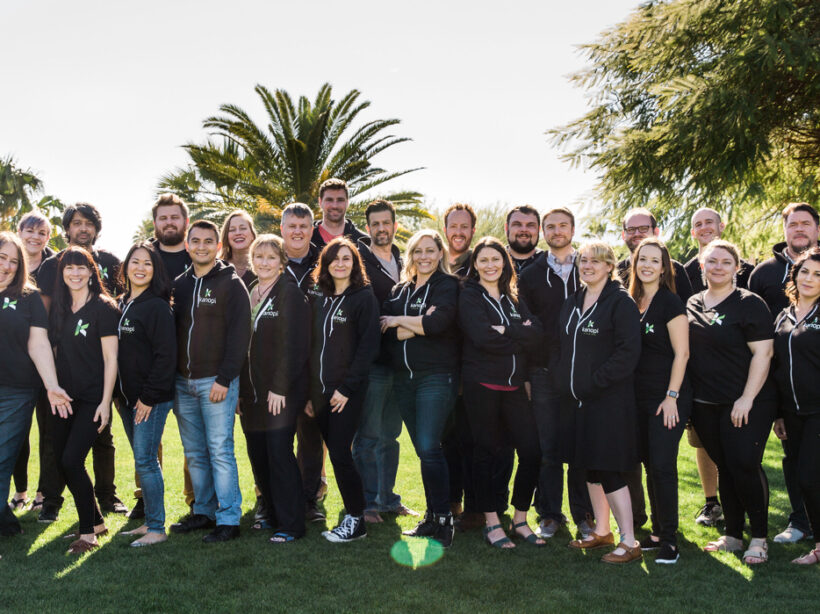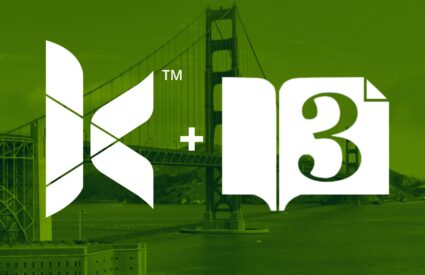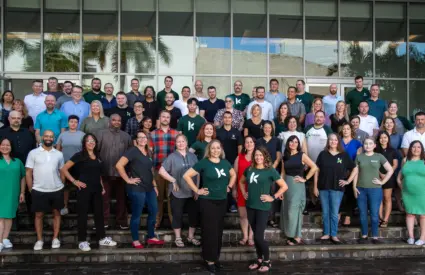We recently participated in an RFP for a potential Canadian client. In addition to the many standard questions that are part of most RFPs, this one also asked us to list our experience working with indigenous communities. In the midst of collaborating on our response, one of our team members had the notion that this would also be a great subject for a blog post, as we’ve noticed that the Indigenous community is sometimes overlooked within larger DEIB conversations.
As far as the RFP, we were actually able to cite a robust body of work for Indigenous clients. Here are a few of the examples we included:
Voices of the Land — Sharing Stories from Indigenous Alberta
A digital public space for communities to create, share, discover, and celebrate Indigenous content online. Visit the Voices of the Land website.

Louis Riel Institute
The Louis Riel Institute serves as the cultural and educational authority of the Manitoba Métis Federation. These digital archives were created to help researchers, scholars, educators, and enthusiasts delve into the collective history of the Red River Métis, fostering a deeper understanding and appreciation of their legacy and contributions. Visit the Louis Riel Institute website here.
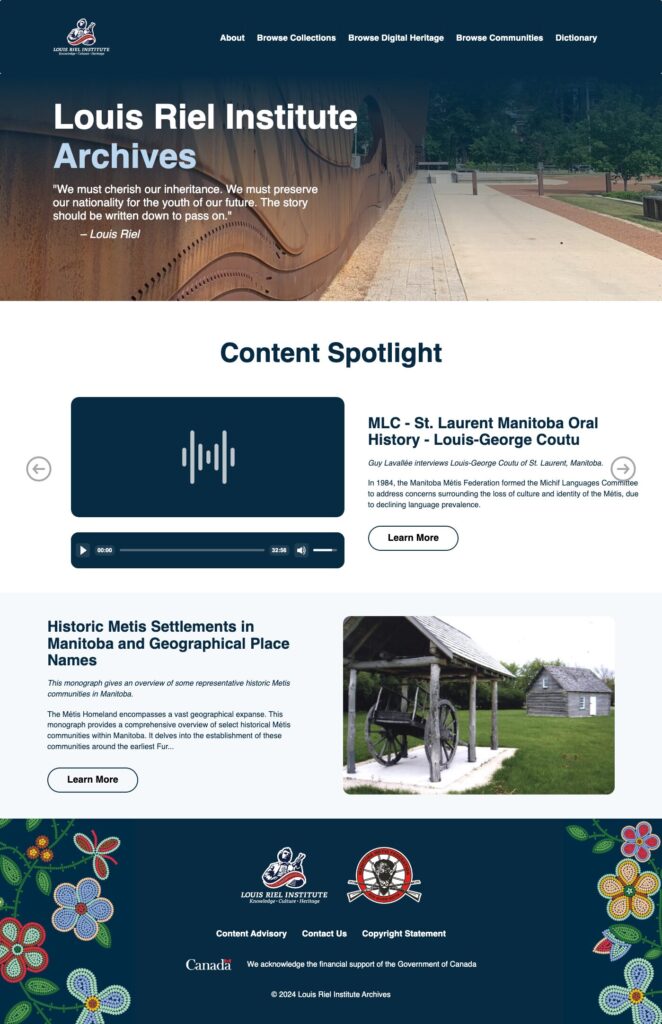
Archive of Native American Recorded History
An online archive for audio interviews and other recordings held in the Doris Duke Native American Oral History Collections. Visit the archive’s website.
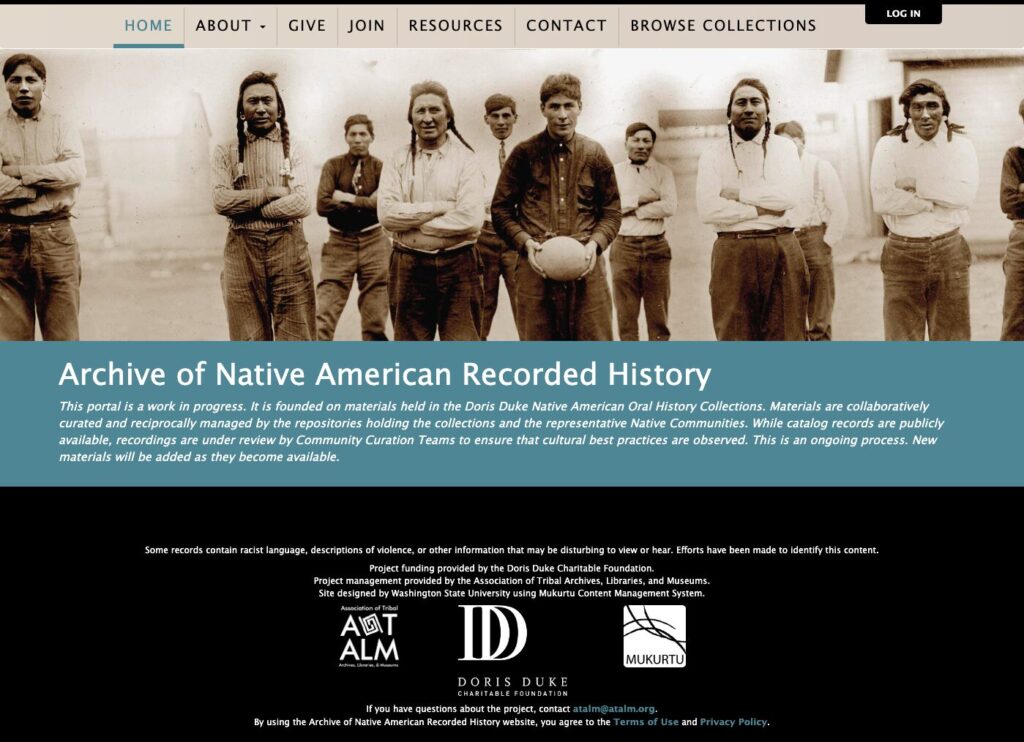
Kivalina Archive
We created an online archive for the Kivalina people of Alaska to help them preserve their cultural and natural history. The archive stores and provides access to records documenting their history of forced resettlement.
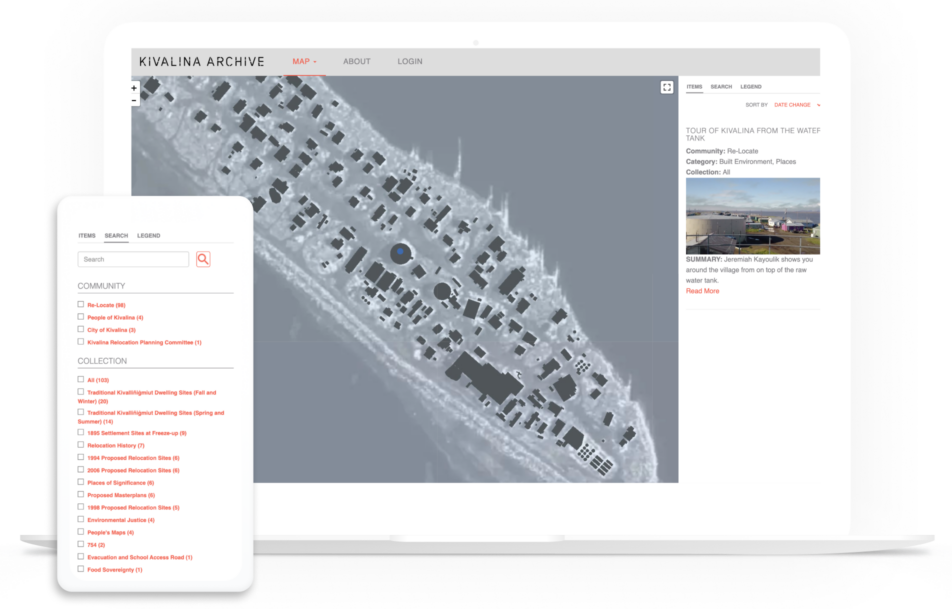
Karuk Tribe — Sípnuuk Digital Library, Archives and Museum
An online resource created to manage, share and enhance understanding of Karuk history, language, traditions, natural resource management and living culture. Visit the Sípnuuk Digital Library.

Yocha Dehe Wintun Nation
Official website of the Yocha Dehe Wintun Nation.

Working to create Indigenous opportunities
However, working with Indigenous communities as our clients is only one part of the equation. Creating more opportunities within Kanopi is also a core part of our commitment to diversity and inclusion. This includes actively recruiting within Indigenous communities.
We’ve established DEIB programs that guide us in posting on targeted job boards aligned with Indigenous communities in the US and Canada, such as:
- Aboriginal Job Board (paid posting)
- First Nations Job Board (paid posting)
- Diversify Tech (paid posting, but not specific to the Indigenous community)
These efforts have so far been a success, as Indigenous people currently constitute 7% of our full-time, salaried workforce. Members of our HR team have also attended webinars on subjects such as Indigenous Resource Groups, and are doing further research on potential training focused on Indigenous recruitment.
On a broader level, we’ve implemented several key initiatives aimed at further reducing bias in our hiring process, such as:
- Completing unconscious bias training (HR department) and have plans to introduce mandatory unconscious bias training to all folks involved in the hiring process.
- Auditing all job postings through a lens of inclusivity.
- Anonymizing all applicants in an effort to remove any possible bias upon initial review.
Thought leadership
Whenever possible, we also like to share our experience, our expertise and our work with Indigenous communities in our blogs. In addition to marketing our capabilities, these posts can help us connect with others seeking to grow and promote business opportunities for Indigenous people. Here are a few examples:
- Supporting Indigenous Communities with Mukurtu CMS
- Mukurtu: A Safe Keeping Place for Sacred Materials
- Reflecting reality: finding diverse and inclusive stock images for your designs
Strengthening our strength
DEIB has become a priority throughout the business world in recent years, and is currently garnering a great deal of press and sparking an ever-growing number of conversations. While it’s been a priority for us since our inception, so has the understanding that we can always do better. We view diversity as both our strength and our competitive advantage — thus it’s not so much a goal but an ongoing, evolving process. By ensuring that our efforts include Indigenous communities, we help expand our talent pool and our business opportunities even farther.


